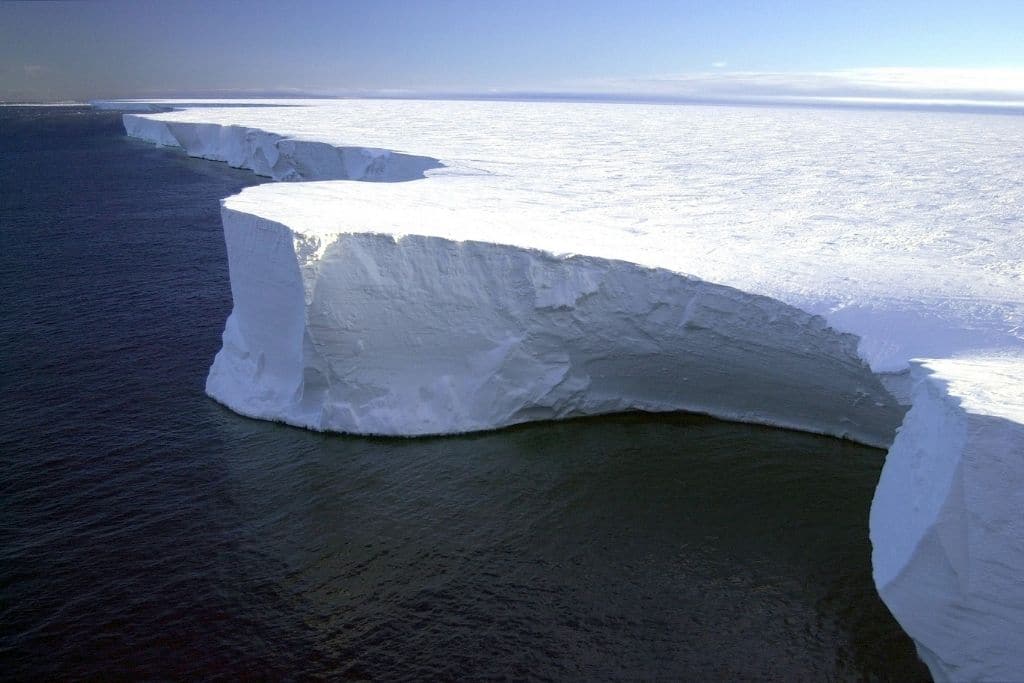The Antarctic sea ice level has fallen to a record low this year, owing to rapidly unfolding global warming.
—
There is no quick fix to reverse the damage done in the Antarctic, scientists said in a new paper on the impacts of climate change on the continent.
The study, published Tuesday in the journal Frontiers in Environmental Science, suggests that planet-warming fossil fuels –which have led to a global warming of 1.1C since the Industrial Revolution – are to blame for the rapid loss of Antarctic sea ice. With an additional heating of at least 0.4C now virtually unavoidable, scientists conclude that the continent will experience more pronounced extreme weather events in the years to come, adding that they “cannot rule out future cascades where extreme events may have wide-ranging linked impacts in multiple realms.”
Antarctic sea ice hit an all-time low in February according to NASA. In the same month, a team of scientists that spent nearly two months on West Antarctica’s Thwaites Glacier between late 2019 and early 2020, warned that its collapse could result in more than half a metre (about 1.6 feet) of global sea level rise potential. However, they also found that the melting of the glacier –nicknamed “Doomsday Glacier” because of the catastrophic impact of its potential collapse – could potentially destabilise neighbouring glaciers, resulting in sea level rise of up to three metres (9.8 feet).
The UN’s World Meteorological Organisation (WMO) reported that temperatures in Antarctica have increased by almost 3C over the past 50 years, with glaciers experiencing an accelerated retreat. Because the Antarctic ice sheet contains 58 metres (190 feet) of sea level rise equivalent over several centuries, scientists are growing worried about its recent behaviour.
Besides sea levels, melting glaciers in the Antarctic region could result in significant biodiversity loss, as thousands of animal species are dependent of the ice pack. A team of Australian scientists even suggested that rapidly melting Antarctic ice will lead to deep ocean water flows from the Antarctic slowing down by 40% in three decades’ time if the current rate of greenhouse gas emissions continues. The collapse of ocean circulation, they said, will have devastating consequences and long-term impacts on weather patterns, sea levels, and marine ecosystems and it will permanently affect the ocean’s ability to absorb carbon dioxide.
The authors of the new study concluded that only rapid and effective policy action by the global community could help mitigate the impacts of Antarctic sea ice loss.
“Nations must understand that by continuing to explore, extract and burn fossil fuels anywhere in the world, the environment of Antarctica will become ever more affected in ways inconsistent with their pledge,” lead author and professor at the University of Exeter Martin Siegert,said in a statement.
“Reducing greenhouse gas emissions to net zero is our best hope of preserving Antarctica, and this must matter to every country – and individual – on the planet.”
You might also like: Glacial Melting in Greenland Will Raise Sea Level by 10 Inches: Study


















